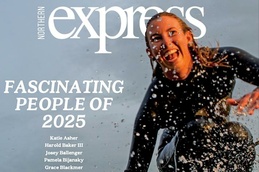Equal Justice for all?
June 6, 2007
Michigan Supreme Court Justice Elizabeth Weaver has criticized the state’s top court because there are no explicit standards that say when a justice should disqualify himself or herself from ruling in a case.Her reward for raising this serious question has been a series of vicious personal attacks against her that distract attention from the serious problem she has raised. Don’t be distracted. There’s a real problem.
A new report from the Justice at Stake Campaign says that state judicial elections are nastier, noisier and more expensive than ever before. Candidates for state supreme courts across the country are building ever-larger campaign accounts. And special interests spend millions of dollars that are never disclosed in any campaign finance report.
This is not a new story. It’s routine for Michigan Supreme Court candidates and their supporters to spend more than $1 million per seat in marketing the candidates. In 2000, the tab was $16 million for three seats, and more than half that spending was totally off the books.
Why does this matter? If courts aren’t fair and impartial, we don’t have equal justice for all. Judges should be free of significant financial relationships with any litigant who appears before them. The American Bar Association’s Model Code of Judicial Conduct says that there shouldn’t be even the appearance of a conflict of interest.
This isn’t a hypothetical discussion. In 2000, the U.S. Chamber of Commerce spent $10 million on Supreme Court campaigns in five states: Michigan, Ohio, Indiana, Alabama and Mississippi. Several corporations, including Wal-Mart, Home Depot and DaimlerChrysler, each gave the U.S. Chamber $1 million for the effort.
The U.S. Chamber, in turn, supported the Michigan Chamber of Commerce and its $3 million television advertising campaign that depicted three candidates as unsuitable for the Court. Notably, however, those ads didn’t make any explicit statement about voting. That is critical because Michigan’s weak campaign finance law doesn’t consider ads that don’t mention voting to be campaign expenditures. These ads masquerade as issue ads and don’t have to be reported. Contributors are not disclosed and the normal prohibitions against using corporate money in a political campaign do not apply.
Subsequent to the 2000 elections, the Michigan Supreme Court, including the three justices whose campaigns were aided by the Michigan Chamber’s undisclosed television campaign, reversed two different damage judgments against DaimlerChrysler that together were worth more than $50 million.
I am not arguing the jurisprudential merits of these cases. But I do know that DaimlerChrysler contributed $1 million to the U.S. Chamber, which sent $1 million to the Michigan Chamber, which ran a multi-million dollar ad campaign that defined the “good guys” and the “bad guys” in the Supreme Court election. The justices backed by the Chamber then ruled on two DaimlerChrylser cases that got the corporation off the hook for $50 million in damages. Do you see the potential conflict of interest in this?
Since 2000, the Michigan Chamber of Commerce has spent $6 million on unreported ads touting the merits of five of our Supreme Court justices, four of whom routinely vote as a block. The Chamber, each election, has spent more than the candidates, a fact that can be verified by data in the state television broadcasters’ public files. The Chamber’s ads had the required disclaimer that says they paid for the ads. But that disclaimer is a label on a black box that conceals the true sources of those funds. Inside that black-box are $6 million worth of potential conflicts of interest, and we have no way to evaluate how many times the justices should have stood aside because somebody in a case before them was financially critical to their election.
What to do? We should require full disclosure of all campaign advertisements that focus on candidates, whether they mention voting or not. That would break open the black boxes that conceal the identities of financial backers and potential conflicts of interest.
More importantly, we should provide public financing for Michigan Supreme Court campaigns. Voters deserve the opportunity to vote for candidates who are demonstrably free of financial entanglements with special interests. Trust and confidence in our highest court is at stake.
And finally, the court should publish standards for self-disqualification that make sense to anyone who reads them.
Rich Robinson is the executive director of the Michigan Campaign Finance Network, a nonpartisan watchdog group.
Trending

Building the Life You Want
Who needs a life coach? While people seek out life coaches for a variety of reasons, one theme is almost always present, co… Read More >>
Nominations are Open for Fascinating People 2026!
That’s right folks, it’s time to think about the most wonderful, curious, eclectic, fantastic, and fascinating p… Read More >>
Winter Trails Day 2025
Celebrated throughout the North, Winter Trails Day invites kids and grown-ups alike to discover the fun of trail-based snows… Read More >>


